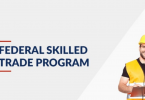How to get a medical laboratory job in Canada: Medical laboratories play a crucial role in the healthcare system. They perform a wide range of diagnostic tests on patient samples.
Basically, these tests help doctors diagnose and treat various medical conditions. Which makes the work of medical laboratory professionals essential to patient care.
If you are an immigrant to Canada looking to pursue a career in this field, read about the steps you can take to land a job in a medical laboratory.
SEE ALSO: How Many Jobs are Available in Major Pharmaceuticals?
Steps for Obtaining a Medical Laboratory Job in Canada as an Immigrant
Here are the steps for obtaining a laboratory job in Canada.
1. Research the requirements for working in a medical laboratory in Canada
The first step in pursuing a career in a medical laboratory in Canada is understanding the requirements for working in this field.
Depending on the province or territory where you plan to work, you may need to meet certain education and training requirements and obtain a license or certification.
For example, in Ontario, medical laboratory technologists must be registered with the College of Medical Laboratory Technologists of Ontario (CMLTO) to work in the field.
It is also important to research the specific requirements for your area to ensure that you are eligible to work in a medical laboratory.
2. Apply for a work visa or permit
If you are not a citizen or permanent resident of Canada, you will need to obtain a work visa or permit to be able to work in the country.
Several work visas and permits are available, depending on your situation.
It is also important to research the options and apply for the appropriate visa or permit in a timely manner to ensure that you can work in Canada.
3. Gain relevant education and/or experience
In addition to meeting the requirements for working in a medical laboratory in Canada, you may also need to gain specific education and/or experience to be competitive in the job market.
This may include completing a post-secondary program in medical laboratory technology or a related field or gaining relevant work experience through internships or volunteering.
It is important to research the specific requirements for the positions you are interested in and tailor your education and experience accordingly.
3. Search for job openings and tailor your application to the specific position
Once you have met the requirements for working in a medical laboratory in Canada and have gained relevant education and experience, it is time to start searching for job openings.
There are several ways to do this, including checking job boards, networking with professionals in the field, and contacting medical laboratories directly.
When applying for a position, tailor your application to the specific job, highlighting your relevant skills and experience.
How to Get a Medical Laboratory Job in Canada: Tips for Success
1. Network with professionals in the field
Networking can be an effective way to learn about job openings and make connections in the medical laboratory industry.
Consider joining professional organizations, attending industry events, or reaching out to professionals in the field. It will help you to learn more about the job market and opportunities for growth.
SEE ALSO: Fiberglass Jobs in Canada and How to Apply
2. Gain practical experience through internships or volunteering
In addition to gaining education and experience through formal programs, you can also gain valuable practical experience by participating in internships or volunteering.
This can help you learn more about the field and build your skills and be a great way to make connections and potentially land a job.
3. Stay up-to-date with industry developments and continuing education
The medical laboratory industry is constantly evolving, with new technologies and techniques always being developed.
To stay competitive in the job market, it is important to stay up-to-date with industry developments and consider participating in continuing education opportunities.
This can help you improve your skills and knowledge. Also, it will help to demonstrate to potential employers that you are committed to staying current in the field.
How to Get a Medical Laboratory Job in Canada: Challenges and Solutions
You may face language barriers if you are an immigrant to Canada and English is not your first language. This happens when you pursue a career in a medical laboratory. However, there are several ways you can overcome this challenge.
Consider taking English language classes or seeking support from language training programs.
You can also seek job openings at medical laboratories serving diverse populations. They may be more understanding of language barriers.
2. Overcoming discrimination and bias
Unfortunately, immigrants to Canada may face discrimination and bias when finding employment.
To overcome this challenge, you may need to be persistent in your job search and be prepared to face rejection.
It can also be helpful to seek support from immigrant-serving agencies or organizations that provide job seekers guidance and resources.
3. Seek support
Several organizations and agencies can provide support and resources for immigrants seeking a career in a medical laboratory in Canada.
Consider reaching out to professional organizations, such as the CMLTO in Ontario. You can also reach immigrant-serving agencies that can guide job search strategies and overcome challenges.
SEE ALSO: How to Apply for Tekla Jobs in Canada
Conclusion
Pursuing a career in a medical laboratory in Canada as an immigrant can be a rewarding and fulfilling path. It also has the potential for growth and advancement in the healthcare field.
When you understand the requirements for working in a medical laboratory, it becomes easy to apply for jobs. Also, it makes it simple to apply for a work visa or permit, gain relevant education and experience, and search for job openings. You can take the first steps toward a successful career in this field.
To increase your chances of success, consider networking, gaining practical experience, and staying up-to-date with industry developments.
While there may be challenges along the way, many resources and supports are available to help you overcome them and achieve your career goals.






